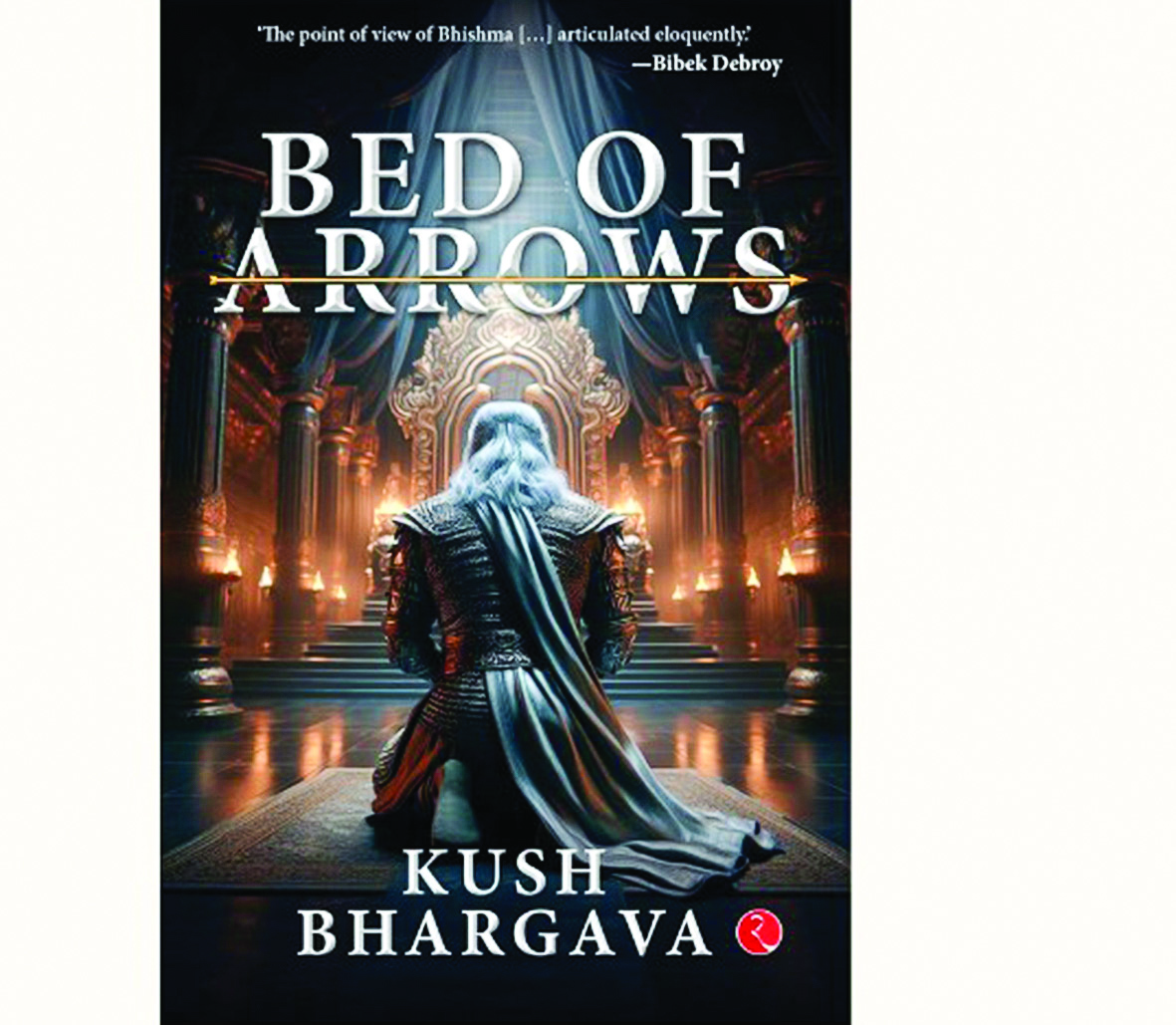The launch of Kush Bhargava’s latest novel, Bed of Arrows, a new historical fiction offers a fresh perspective on the Mahabharata, one of India’s most revered epics, through the lens of its most tragic and complex figure, Bhishma Pitamah.
In Bed of Arrows, Bhargava delves into Bhishma’s internal conflicts as he lay on a bed of arrows, reflecting on the choices that led to the epic war. The narrative presents Bhishma as a man bound by his vows, torn between duty and desire, and ultimately helpless in the face of his fate. Bhargava’s portrayal is both poignant and thought-provoking, offering readers a chance to engage deeply with the character’s struggles.
The evening was graced by notable personalities including Salman Khurshid, Saleem Shervani, Pavan K. Varma, Neelima Dalmia Adhar, and Raghav Chandra, amongst others who contributed to the rich discussions surrounding the book. Bhargava’s Bed of Arrows explores the life of Bhishma, a mighty warrior whose vow of celibacy and unwavering loyalty to the throne of Hastinapura set the stage for the catastrophic conflict of Kurukshetra.
Bhargava began the evening by sharing the inspiration behind his novel, a journey that started during the COVID-19 lockdown. “I started writing this book during the days of COVID, re-watching the Mahabharata on Doordarshan,” Bhargava explained. “I had always been drawn to Bhishma Pitamah’s character. By the third or fourth day, I told my wife that I was going to write a book on this man.”
Raghav Chandra, a distinguished guest, praised the novel for its exploration of timeless themes such as sacrifice and karma. “This book is all about sacrifice, karma, and atonement – or the punishment that you bear upon yourself for your past karma,” Chandra remarked. “In modern fiction, atonement occurs within a single lifetime, but Bhishma’s story suggests that atonement transcends time and space.”
Neelima Dalmia Adhar reflected on the human aspects of Bhishma that Bhargava so vividly captures in the novel. “There is a certain humanizing of Bhishma Pitamah that Kush has beautifully brought to life in his book. He is full of flaws; he is not this great patriarch expected to be perfect. On his deathbed, he is full of regrets and remorse, but my answer to that is that regrets and remorse can evoke grief but cannot be condoned.”
Pavan K. Varma, adding his thoughts on the significance of the book, stated, “This book is important because I don’t believe that the mysteries of the Mahabharata have been fully unraveled. The Mahabharata is perhaps the only existing central Hindu epic that fully explores the relativity of right and wrong.”
In Conversation with Kush Bhargava:
Q: Why did you choose Bhishma Pitamah as the focus of your novel?
Bhargava: “Bhishma Pitamah has always intrigued me because of the contradictions in his life. He’s seen as a hero, yet his life is filled with helplessness and sacrifice. I wanted to explore the psychological and emotional turmoil of this great character, who was bound by his own vows despite his immense power.”
Q: How do Bhishma’s struggles resonate with contemporary readers?
Bhargava: “Bhishma’s story is universal. It speaks to the ongoing conflict between personal desires and societal duties that many of us face today. His struggle between dharma and personal sacrifice is something that resonates deeply, especially in a world where we’re constantly trying to balance personal ambitions with responsibilities.”
Q: What do you hope readers take away from Bed of Arrows?
Bhargava: “I hope readers gain a deeper understanding of the moral complexities and human emotions that drive us. Bhishma’s life is a testament to the fact that even the mightiest can be vulnerable. I want readers to reflect on the consequences of their choices, much like Bhishma did.”
The novel, Bed of Arrows promises to be a significant addition to contemporary Indian literature, inviting readers to reflect on the timeless themes of duty, desire, and destiny.







